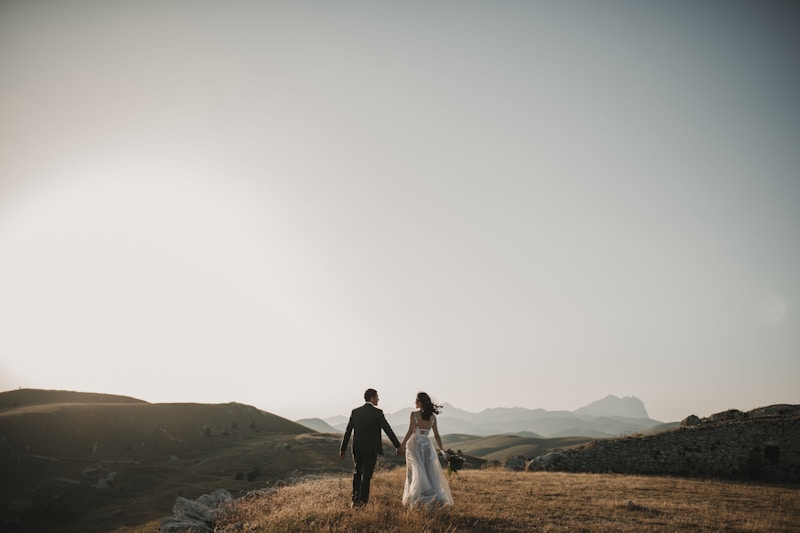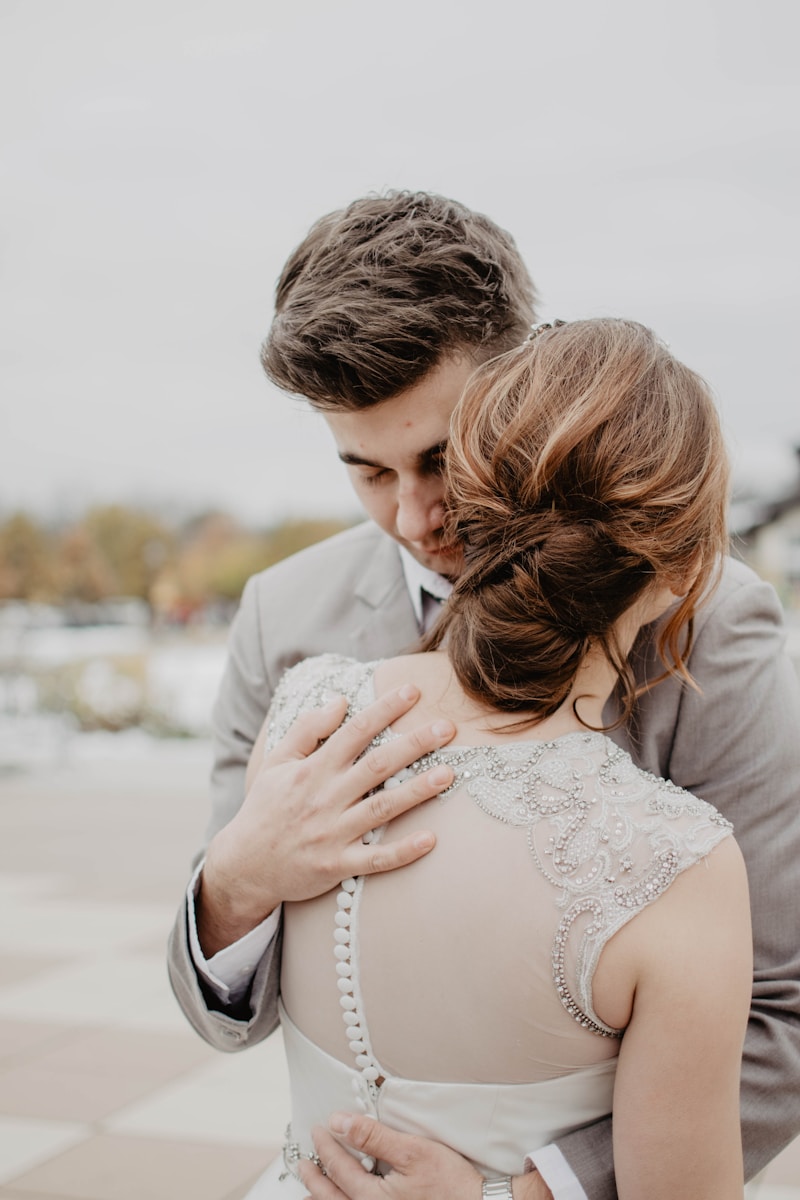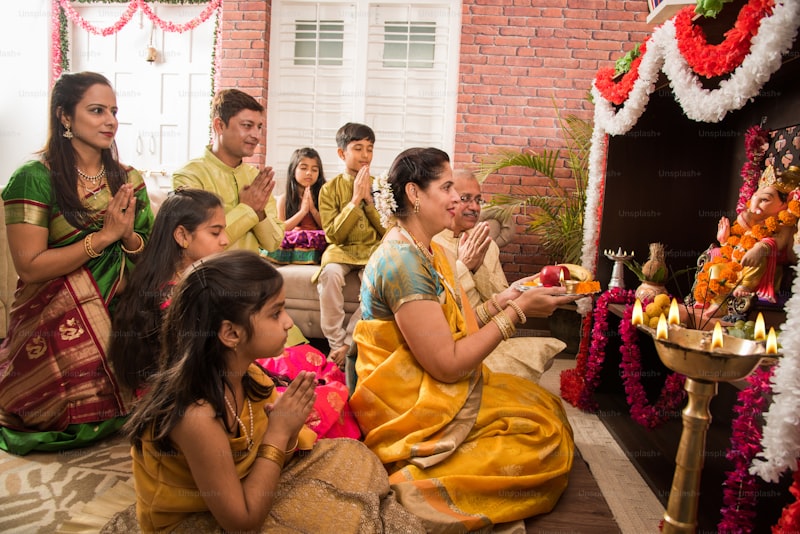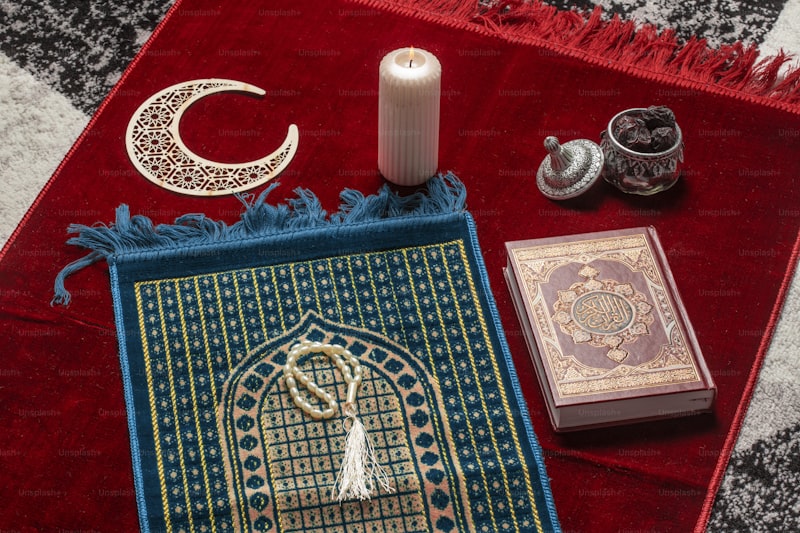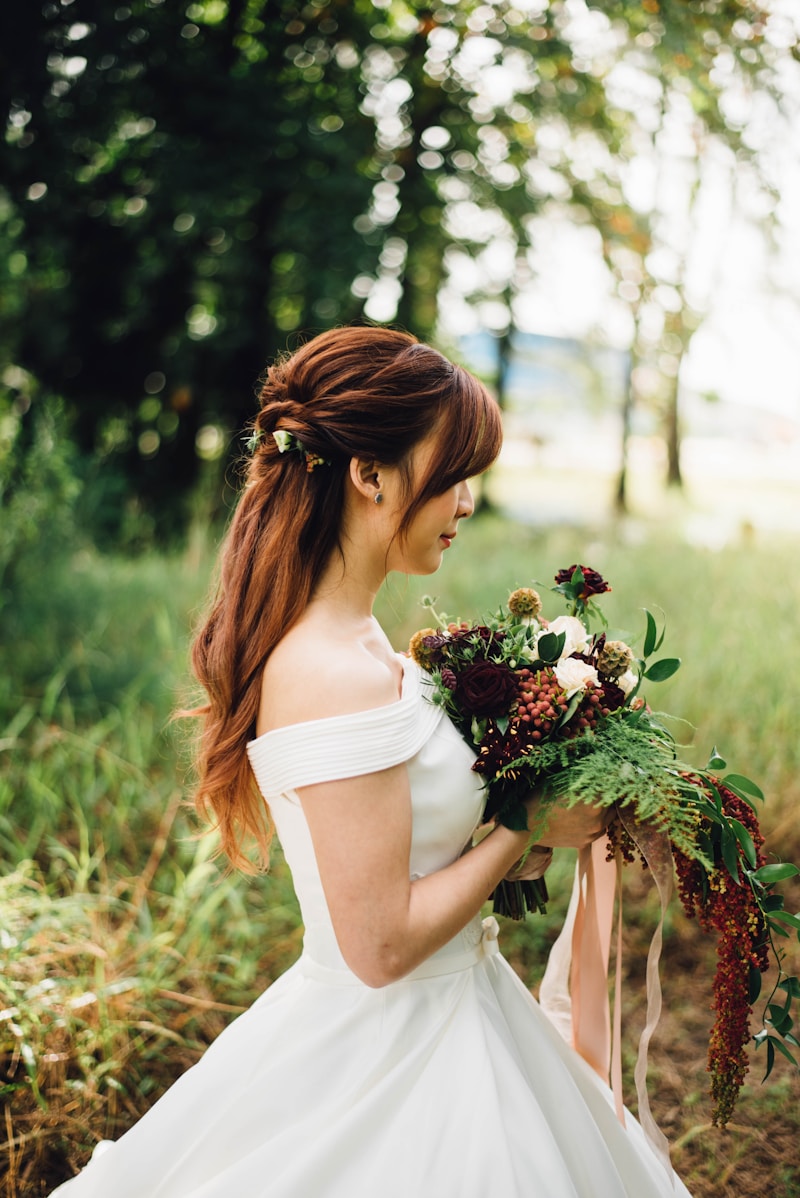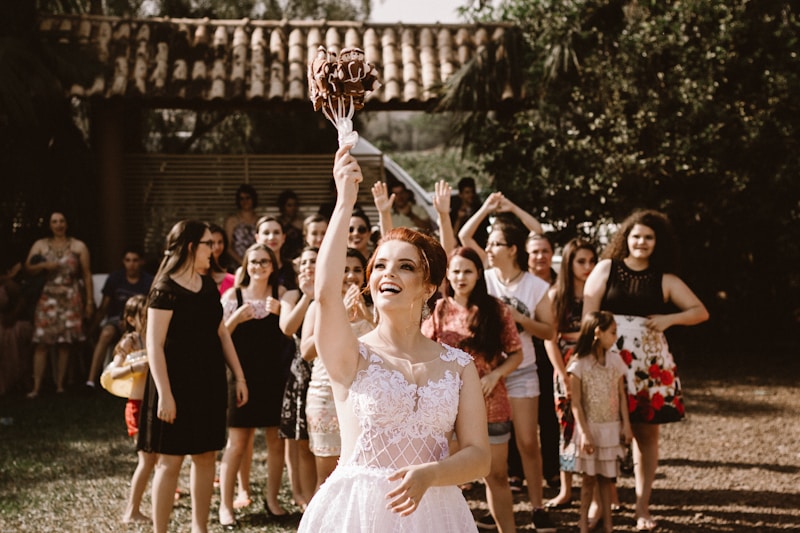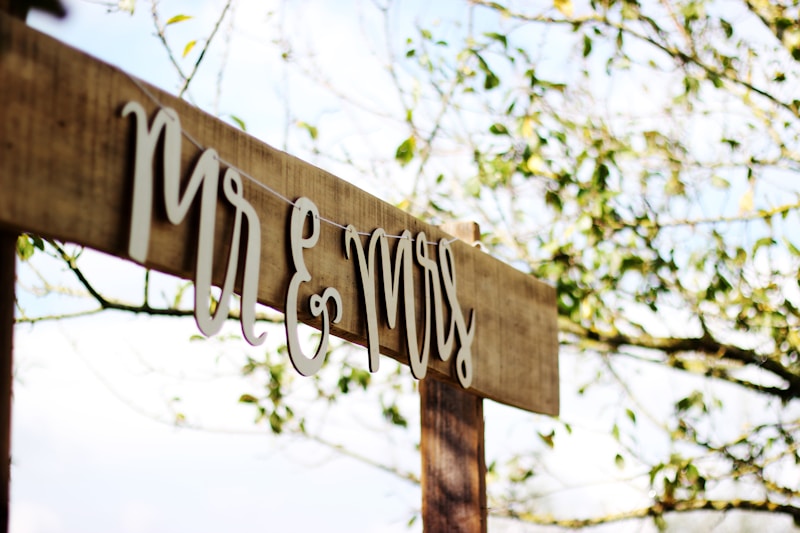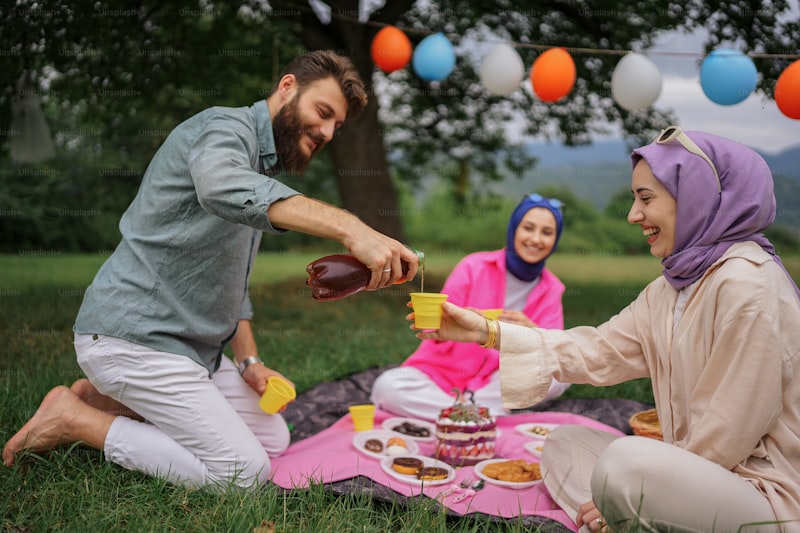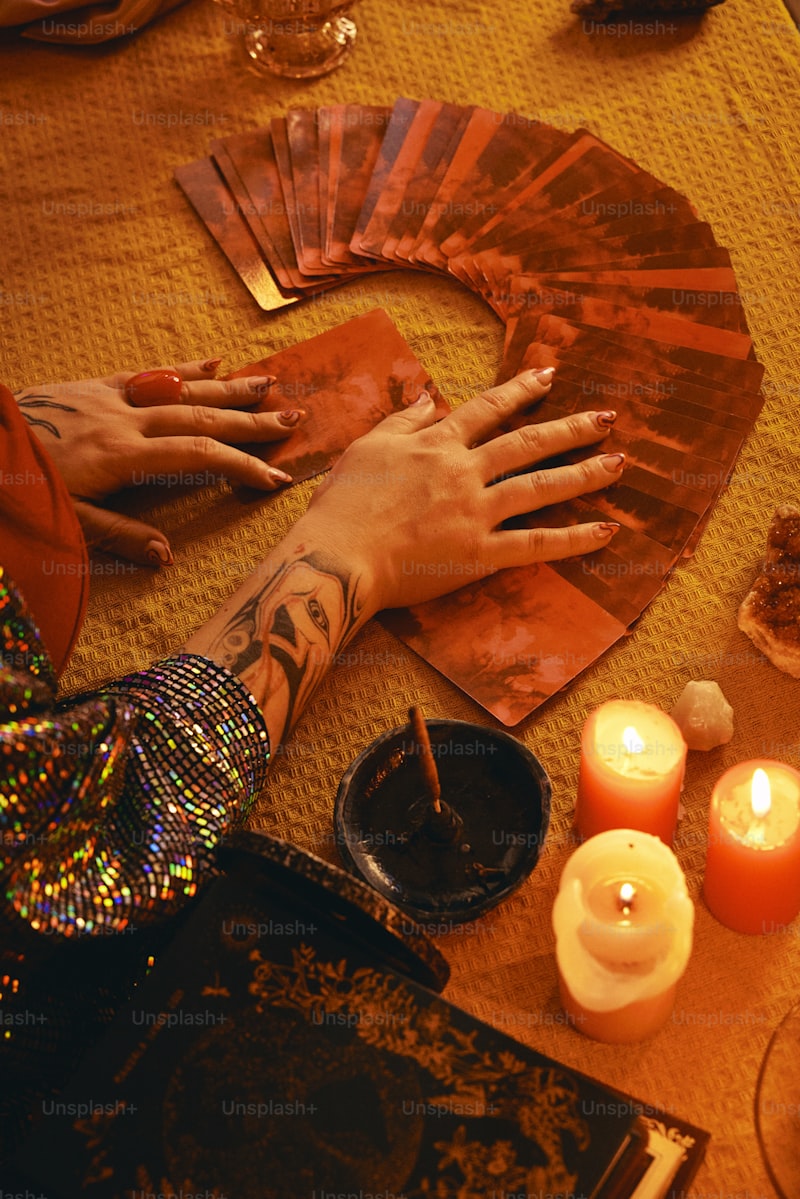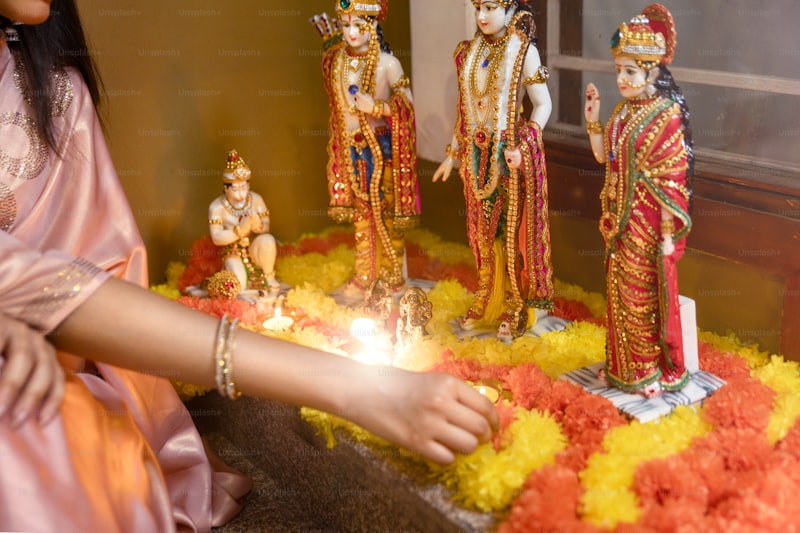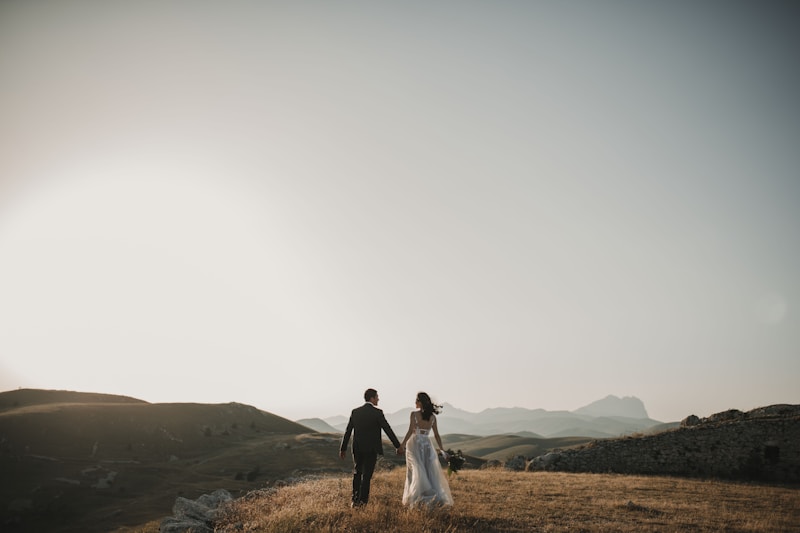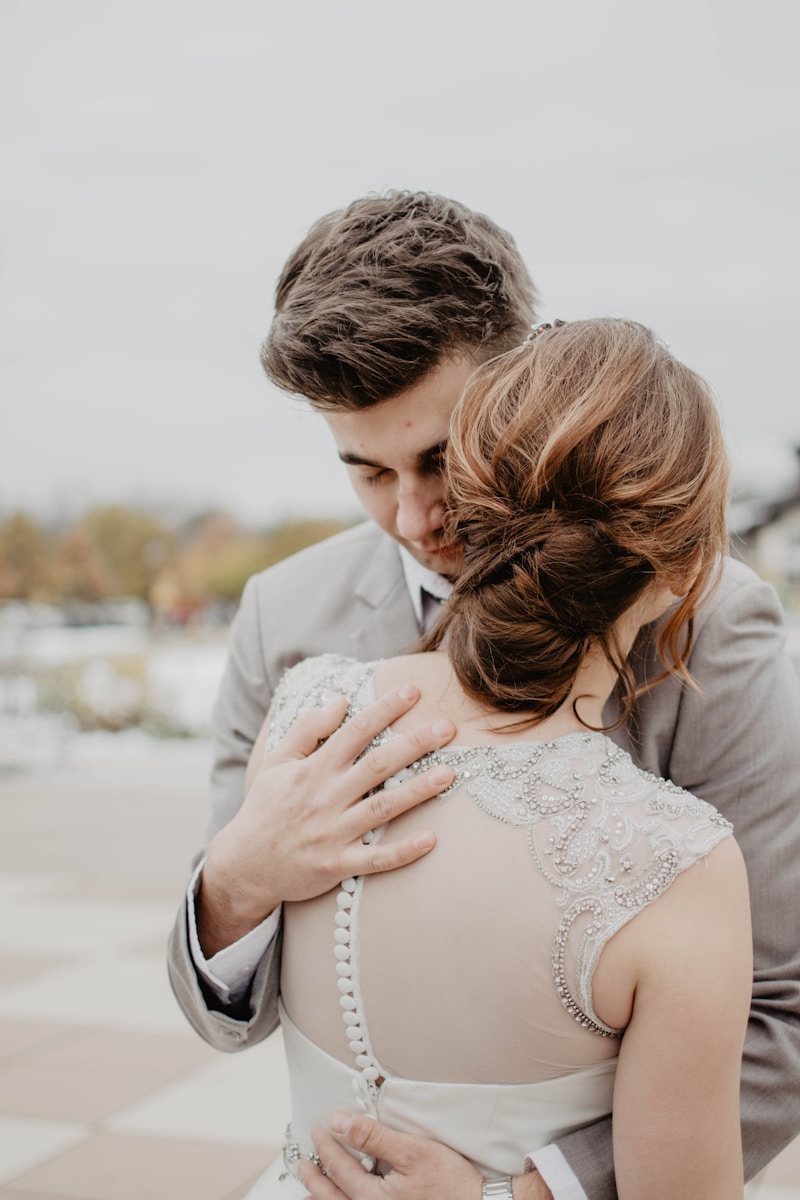Exploring Personalization in Ethnic Weddings: A Unique Approach to Celebrating Love
Understanding Personalization in Ethnic WeddingsIn today's world, many couples are looking to create a wedding day that reflects their unique love story and cultural heritage. Personalization in ethnic weddings allows for the incorporation of individual preferences into traditional ceremonies. This article will delve deep into the various ways you can personalize your ethnic wedding, ensuring that your special day is as unique as your relationship.Why Personalization MattersPersonalization adds a layer of significance to weddings by intertwining the couple's stories with their cultural backgrounds. Here are a few reasons why personalization is essential: Reflects Identity: A personalized wedding showcases the couple's values and traditions, strengthening their identity. Memorable Experience: Personal touches create lasting memories for both the couple and the guests. Cultural Significance: Incorporating specific customs can make the ceremony more meaningful and relatable.Popular Elements of Personalization in Ethnic WeddingsWhen it comes to planning an ethno-cultural wedding, several elements can be personalized. Here are some popular ones:1. Customized Wedding AttireOne of the most significant aspects of any wedding is the attire. Couples can incorporate elements from their cultural backgrounds into their outfits. For instance, a bride from an Indian background might wear a red lehenga decorated with intricate embroidery, while a groom might don a traditional sherwani. Co...
Transforming Traditions in Modern Nuptials: A New Era of Wedding Celebrations
Weddings are a beautiful amalgamation of culture, love, and tradition. However, as society evolves, so do the practices surrounding marriage. The concept of "Transforming Traditions in Modern Nuptials" reflects the ways in which contemporary couples are reshaping age-old customs to suit their personalities, values, and lifestyles. This article explores the various aspects of modern weddings, examining how they gracefully blend tradition with modernity while catering to the diverse needs of today's couples.Understanding the Shift: Why Transform Traditions?Weddings have always been steeped in tradition, but as new generations step into marriage, the desire for personalized experiences has grown significantly. Couples are increasingly looking beyond conventional norms, opting instead for weddings that genuinely reflect their unique stories. But why is this shift happening? Here are a few factors:Individuality: Modern couples want their weddings to be a true representation of who they are. With social media, showcasing personal experiences has become vital.Inclusivity: As our societies become more diverse, the approach to weddings must also embrace various cultures and orientations, ensuring that every love story is celebrated.Environmental Awareness: Many couples are becoming more eco-conscious, looking for sustainable ways to celebrate their special day.The New Normal: Modern Wedding TrendsWith the transformation of traditions, several trends have emerged that showcase the mode...
Diverse Wedding Traditions: A Celebration of Love Across Cultures
Weddings are a beautiful expression of love, culture, and tradition. Across the globe, each culture brings its own unique set of customs and rituals that characterize the marriage ceremony. In this article, we will explore Diverse Wedding Traditions from various parts of the world, highlighting the significance behind these practices and their evolution over time. The Importance of Wedding Traditions Wedding traditions serve as a reflection of a couple's beliefs, values, and heritage. They often encompass the essence of family, community, and shared history. Understanding these customs not only enriches the wedding experience but also fosters a sense of unity and respect for cultural diversity. Below, we delve into a variety of wedding traditions around the world, illuminating the beauty found in diversity. Indian Weddings: A Vibrant Extravaganza Indian weddings are known for their elaborate ceremonies and colorful festivities. These weddings can last several days and include a plethora of rituals. One notable custom is the Sangeet, a night of music and dance where family and friends celebrate the upcoming nuptials. Additionally, the Mehendi ceremony features intricate henna designs applied to the bride's hands and feet, symbolizing joy and beauty. Key Indian Wedding Traditions Sangeet: Musical Celebration Night Mehendi: Henna Application Ceremony Baraat: Groom's Procession to the Wedding Venue Vidaai: Emotional Farewell from Bride's Family Japanese Weddings: ...
Exploring the Deep Threads of Symbolism in Cultural Rituals
Unveiling Symbolism in Cultural Rituals Symbolism plays a crucial role in cultural rituals, transcending mere actions to convey deep meanings and traditions. By examining various cultures, we can unveil how symbols in rituals connect community, history, and identity, enriching our understanding of human experience. Understanding the Basics of Symbolism At its core, symbolism involves using signs, words, or objects to represent broader concepts or ideas. In cultural rituals, symbols can refer to a variety of elements, including: Colors - Different colors can evoke distinct emotions or signify particular beliefs. Objects - Items used in rituals often carry significant meaning. Actions - The gestures or movements in rituals can symbolize deeper spiritual meanings. The Importance of Rituals in Culture Cultural rituals are events that involve structured activities, often rooted in tradition. They range from religious ceremonies to communal celebrations, and they act as vital links within societies. Through rituals, communities can: Celebrate Milestones: Events such as weddings, graduations, or the birth of a child. Honor Ancestors: Many cultures hold rituals to pay homage to those who came before them. Unite the Community: Rituals foster social bonds and provide shared experiences. Examples of Symbolism in Cultural Rituals Around the World To further understand the significance of symbolism in rituals, let’s delve into specific examples from various cultures...
Heritage and Modern Weddings: A Fusion of Traditions and Contemporary Elegance
In recent years, the wedding landscape has evolved dramatically, intertwining heritage and modern elements to create unforgettable ceremonies. This article delves into the rich tapestry of Heritage and Modern Weddings, exploring how couples can honor their cultural backgrounds while embracing contemporary trends. From unique venues to fusion cuisine, we’ll showcase essential aspects of this beautiful blend.The Significance of Heritage in WeddingsHeritage is steeped in rich traditions that signify love, commitment, and family values. Every culture has its distinctive rituals, attire, and customs surrounding wedding ceremonies. Understanding these practices allows couples to incorporate personal and meaningful touches into their celebrations. Some key heritage elements include:Cultural Attire: Traditional wedding attire reflects cultural identity. For example, Indian brides often wear vibrant saris adorned with intricate designs, while Scottish grooms may don kilts as a symbol of their heritage.Rituals and Customs: Many weddings feature specific rituals that hold significant meanings, such as the Chinese tea ceremony, where couples serve tea to their elders as a gesture of respect.Music and Dance: Traditional music and dance are often integral parts of weddings, enriching the festivities and connecting guests to their cultural roots.Modern Trends in WeddingsWhile heritage plays a crucial role, modern weddings are characterized by creativity, personalization, and innovative choi...
Exploring Ethnic Wedding Practices Around the World
Weddings are a celebration of love, commitment, and cultural identity, serving as a reflection of the various traditions and customs across different societies. Ethnic wedding practices are rich with symbolism and meaning, offering a glimpse into the history and values of respective cultures. In this article, we will delve deep into the fascinating world of ethnic wedding practices, examining their significance, rituals, and the various ways they are celebrated around the globe.Understanding Ethnic Wedding PracticesEthnic wedding practices vary widely, influenced by religious beliefs, historical contexts, and local customs. These variations highlight the incredible diversity found within weddings, even in a globalized world. For many, a wedding is not just an event; it is a representation of community and heritage.The Importance of Cultural HeritageFor many couples, traditional wedding ceremonies provide a way to honor their heritage and connect with their roots. Different ethnic practices can showcase unique elements such as: Traditional Attire: Each culture has its own clothing that is often symbolic. For instance, a Chinese bride might wear a red qi pao, while a Scottish groom may don a kilt. Symbolic Rituals: Many wedding ceremonies include rituals that symbolize the couple’s commitment or their families' blessings. Cultural Music and Dance: Music and dance often play a significant role in weddings, contributing to the festive atmosphere.Common Themes Across Ethn...
Exploring Global Wedding Customs: A Comprehensive Guide
Weddings are more than just a union between two individuals; they are a celebration of love that encapsulates diverse cultural traditions and customs around the world. Understanding these global wedding customs allows us to appreciate the rich tapestry of human relationships and cultural heritage. In this article, we will explore various wedding customs from different corners of the globe, highlighting unique traditions, rituals, and the significance behind them.The Importance of Wedding CustomsWedding customs vary significantly between cultures, and these differences can often reflect historical backgrounds, religious beliefs, and social norms. By examining global wedding customs, we can gain insights into how love and commitment are expressed in different societies. Let’s explore a few fascinating customs from around the world.1. Traditional Wedding Customs in AsiaAsia is known for its rich and varied wedding customs. From elaborate ceremonies to simple gatherings, each culture has its unique take on what a wedding should entail.CountryWedding CustomIndiaThe Indian wedding is often a multi-day event featuring rituals such as the Mehendi (henna application) and the Saptapadi, where the couple takes seven steps together, symbolizing their journey.ChinaIn Chinese weddings, the color red symbolizes good fortune. Traditional ceremonies often include a tea ceremony where the couple serves tea to their parents as a sign of respect.JapanJapanese weddings can be Shinto, Buddhist, or...
Bespoke Cultural Celebrations: A Tailored Experience for Every Occasion
Cultural celebrations hold a vital role in societies around the world, serving as a vibrant reminder of traditions, beliefs, and community spirit. However, the concept of 'Bespoke Cultural Celebrations' has gained significant traction in recent years, appealing to those who are interested in customizing their celebratory experiences. In this article, we will explore what bespoke cultural celebrations entail, their benefits, and how you can create a unique event that resonates with your values and interests.What are Bespoke Cultural Celebrations?Bespoke cultural celebrations are tailored events designed around specific cultural themes or traditions. The term 'bespoke' indicates that these celebrations are custom-made to fit the desires and needs of the individual or group organizing them. Unlike standard cultural events or festivals, bespoke celebrations prioritize personalization, making each event a unique reflection of the host's identity and heritage.The Rise of Bespoke Cultural CelebrationsIn today’s globalized world, many individuals feel a strong desire to celebrate their cultural heritage in a manner that reflects their personal values. As we embrace diverse communities, bespoke cultural celebrations provide a platform for people to share their stories and experiences through customized events.Characteristics of Bespoke Cultural CelebrationsPersonalization: Tailored themes and activities that reflect the host’s cultural background.Creativity: Engaging in unique express...
Exploring Rituals for Different Cultures: A Deep Dive into Traditions and Significance
Understanding Cultural RitualsRituals are an integral part of human culture, embodying beliefs, traditions, and values that vary across different societies. Each culture has unique practices that reflect its history and social dynamics. In this article, we will explore the rituals for different cultures, delving into their meanings and the roles they play in shaping communities around the globe.The Essence of RitualsRituals can be defined as established procedures or ceremonies often performed for religious or cultural significance. They can take various forms, including religious observances, seasonal festivals, rites of passage, and communal gatherings. These rituals reflect the collective identity and values of a community, serving to reinforce social bonds and promote cultural continuity.Types of Rituals Across CulturesTo better understand the diversity of rituals, we can categorize them into several types:Type of RitualDescriptionReligious RitualsPractices that are part of religious traditions, such as prayers, sacraments, and ceremonies.Rites of PassageCeremonies that mark significant transitions in a person's life, such as birth, marriage, and death.Seasonal FestivalsCelebrations that occur at specific times of the year, often linked to agricultural cycles or seasonal changes.Communal GatheringsEvents that bring individuals together, fostering social connections and a sense of belonging.Notable Rituals from Around the WorldLet’s take a look at some fascinating rituals ...
Ceremonial Traditions Around the World: A Fascinating Journey Through Diverse Cultures
Ceremonial traditions around the world serve as a profound reflection of cultural heritage, societal values, and collective beliefs. From weddings to funerals, and from initiation rites to festivals, these ceremonies encapsulate a community's identity and historical narrative. In this article, we will explore various ceremonial traditions across different countries, examining their significance, unique practices, and the universal themes that connect them.The Importance of Ceremonial TraditionsCeremonial traditions are not merely rituals; they play a crucial role in maintaining cultural identity and fostering community bonds. They provide moments of joy, reflection, and closure, allowing individuals to mark significant life events. Understanding these traditions can offer valuable insights into the cultures from which they emerge.Weddings: Celebrating Love Across CulturesWeddings are one of the most celebrated ceremonies globally, each culture having its distinctive way of honoring the union of two individuals. For example, in India, weddings often span several days, incorporating elaborate rituals like the Mehendi, where intricate henna designs are applied to the bride's hands. In contrast, a traditional Japanese Shinto wedding features a serene ceremony in which the couple wears formal kimonos and participates in a sake-sharing ritual called san-san-kudo.Funeral Rites: Honoring the DepartedWhile weddings celebrate beginnings, funeral rites provide closure and remembrance. I...
Exploring the Ethnic Influence in Wedding Styles: A Cultural Journey
Understanding Ethnic Influence in Wedding StylesWeddings are significant milestones in people's lives, celebrated with great fervor across the globe. Yet, the style and elements incorporated into these ceremonies can vary dramatically based on cultural backgrounds. This article delves into the ethnic influence in wedding styles, highlighting how various cultures shape the traditions that couples follow on their special day. From attire and ceremonies to rituals and decor, let's explore the unique aspects that define wedding styles around the world.The Cultural Significance of WeddingsA wedding is more than just a legal contract; it is a profound cultural ritual that unites not only two individuals but also their families. Each culture has its unique practices and traditions, infused with beliefs, values, and history. For example, in Indian culture, weddings are elaborate affairs that can last several days and involve various ceremonies such as the Mehendi and Sangeet, which include music and dance. In contrast, traditional Western weddings may be characterized by a church service followed by a reception, highlighting the beauty of simplicity and elegance.Key Elements of Ethnic Wedding StylesWedding ElementEuropean InfluenceIndian InfluenceAfrican InfluenceAttireWhite gown, tuxedoLehenga, kurtaColorful attire, traditional beadsCeremony Length1 day3-5 daysVaries by tribeRitualsVows, ring exchange7 pheras, sindoorSymbiotic rituals with natureCuisineCourse meals, wedding cakeBuff...
Exploring Celebratory Cuisine in Diverse Weddings: A Culinary Journey Through Cultures
Weddings are more than just a union of love; they are a celebration of culture, tradition, and, of course, cuisine. The food served at weddings often reflects the cultural background of the couple and can range from culinary delights inspired by family recipes to modern interpretations of traditional dishes. In this article, we will explore the significance of celebratory cuisine in diverse weddings, showcasing different cultural practices and popular dishes that make these events memorable.The Culinary Significance of WeddingsThe role of cuisine in weddings cannot be overstated. It is not just about satisfying hunger; food serves as a medium to express love, joy, and social ties. Across the globe, different cultures have developed unique culinary practices that play a crucial role in wedding celebrations. For example, in many cultures, the act of sharing a meal is symbolic of union and community.Understanding Diverse Wedding TraditionsTo truly appreciate the variety of celebratory cuisine found in weddings, it is essential to explore some notable traditions from various cultures:CultureTraditional DishesSignificanceItalianLasagna, TiramisuSymbolizes abundance and loveIndianBiryani, SweetsRegarded as a symbol of prosperityJewishChallah Bread, BrisketRepresents unity and sharingChineseWhole Fish, DumplingsSignifies prosperity and completenessMexicanTacos, Tres Leches CakeHighlights the joy of unity and family tiesItalian Weddings: A Feast for All SensesIn Italy, weddings are k...
